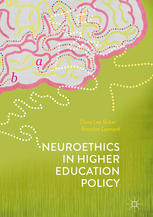

Most ebook files are in PDF format, so you can easily read them using various software such as Foxit Reader or directly on the Google Chrome browser.
Some ebook files are released by publishers in other formats such as .awz, .mobi, .epub, .fb2, etc. You may need to install specific software to read these formats on mobile/PC, such as Calibre.
Please read the tutorial at this link: https://ebookbell.com/faq
We offer FREE conversion to the popular formats you request; however, this may take some time. Therefore, right after payment, please email us, and we will try to provide the service as quickly as possible.
For some exceptional file formats or broken links (if any), please refrain from opening any disputes. Instead, email us first, and we will try to assist within a maximum of 6 hours.
EbookBell Team

5.0
48 reviewsThis book focuses on neuroethics in higher education in the United States. After introducing readers to the philosophical and policy foundations of the neuroethics of higher education, this book explores essential conundrums in the neuroethical practice of higher education in modern democracies. Focusing on neuroethics from the perspective of universally designed learning and policy design sets this project apart from other work in the field. Advances in neuroscience and changes in attitudes towards disability have identified mechanisms by which higher education infrastructures interact with both individuals considered neurotypical and those with identified disabilities to diminish students’ capacity to enter, persist, and complete higher education. Policy to date has focused on identified disabilities as a requirement for accommodations. This strategy both underestimates the effect of ill-fitting infrastructures on those considered neurologically typical and serves to stratify the student body. As a result, neuroethical gaps abound in higher education.